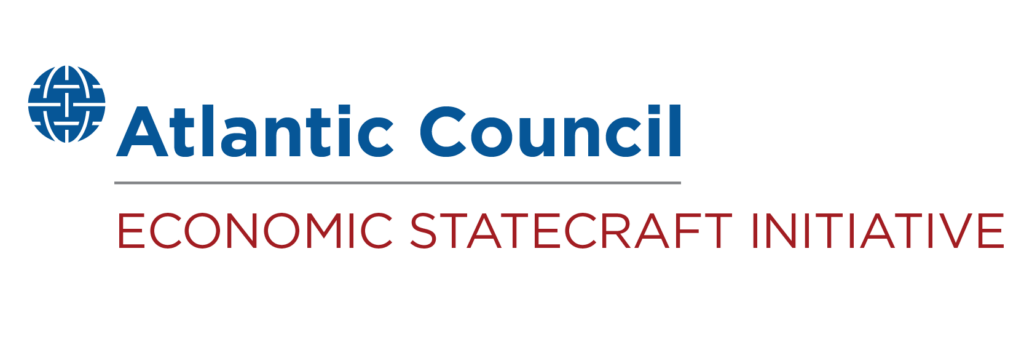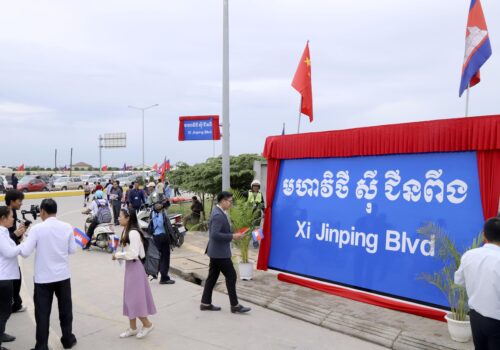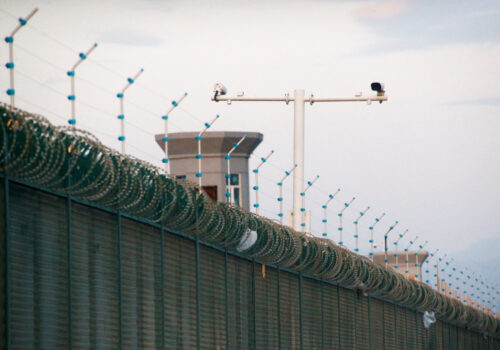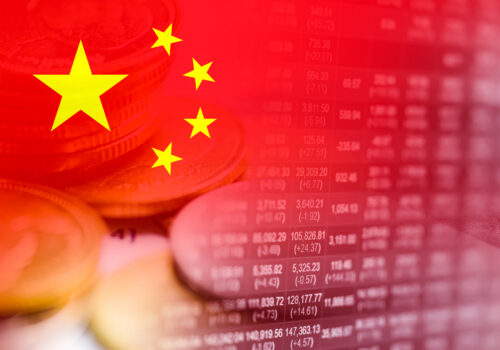Safeguarding Uyghur human rights: The US should leverage economic statecraft tools to end Uyghur forced labor
Over the past decade, the People’s Republic of China has intensified its draconian repression of the Uyghurs, a Turkic ethnic group with origins in the Xinjiang Uyghur Autonomous Region. Also referred to as the Uyghur Region or East Turkestan, it is home to an estimated twelve million Uyghurs.
Since China began its policy of mass internment in 2017, an estimated two million Uyghurs have been arbitrarily detained in state-run internment camps, where they are subject to political indoctrination, torture, organ harvesting, and forced repudiation of their religious and ethnic identities. According to the United Nations, these abuses may constitute crimes against humanity. Several governments, including the United States, have determined that China is actively committing genocide against the Uyghurs.
Despite international calls for China to cease its human rights abuses, the government is instead furthering its repression of the Uyghurs. For those who narrowly avoid detainment in internment camps, another stark fate awaits them: subjection to China’s state-sponsored forced labor programs.
Through sanctions and the adoption of anti-forced labor legislation, the United States has led the global effort to combat China’s forced labor practices. While these measures have moved the needle in the fight against forced labor, widespread tariffs and the absence of new punitive measures targeting forced labor may cause progress to stagnate. As tensions grow and global economic uncertainties unfold, the Trump administration must ensure that it does not lose sight of Uyghur human rights. The United States can help curtail China’s forced labor practices and uphold its precedent of promoting Uyghur human rights by doubling down on its enforcement of the Uyghur Forced Labor Prevention Act and imposing additional anti-forced labor measures.
Which industries are exposed to Uyghur forced labor?
Forced labor plays a central role in China’s campaign of repression. Two systems of forced labor exist in China, which primarily target the Uyghurs. The first system exploits detainees in China’s internment camps for labor. The second system—conducted under the pretense of “poverty alleviation”—involves transferring large numbers of Uyghurs from rural regions to factories and fields across China. In both instances, authorities use intimidation and abuse to coerce individuals to labor. Following their subjection to China’s labor programs, workers face abusive working conditions, inadequate pay (if any), rigid surveillance, political indoctrination, and mandatory Mandarin lessons—a systematic effort to erase Uyghur language and culture.
Crucially, industries and supply chains across the world risk exposure to Uyghur forced labor. The Uyghur Region is deeply integrated in the global economy, accounting for roughly 20 percent of the world’s cotton, 25 percent of the world’s tomatoes, 45 percent of the world’s solar-grade polysilicon, and 9 percent of the world’s aluminum. Given that a sizable portion of the world’s production takes place in the Uyghur Region, goods that are produced through Uyghur forced labor inevitably enter international supply chains and end up in stores and households across the world.
Though forced labor touches industries ranging from automotive to pharmaceuticals, it is especially pervasive in the apparel and agriculture industries. Under conditions that raise concerns of coercion, nearly half a million Uyghurs and other ethnic minorities are transferred each year to work in cotton fields. In China’s tomato fields, workers are subject to torture, with testimonies of beatings and electric shocks administered to those who fail to meet high daily quotas. Evidence of forced labor has also emerged in the seafood industry, where Uyghurs work in Chinese processing plants that supply seafood to the United States—seafood that ends up in federally-funded soup kitchens, school lunches provided by the National School Lunch Program, and even US canned fish donations to Ukraine.
Against this backdrop, the Forced Labor Enforcement Task Force identified several industries where forced labor is deeply entrenched as high-priority sectors for enforcement. This is an important designation. However, without sustained effort and vigorous screening, products made with forced labor will continue making their way into our homes and taint everything from the clothing we wear to the food we eat.
How has the United States responded to Uyghur forced labor?
Escalating human rights abuses against the Uyghurs and other ethnic minorities have prompted governments across the world to act. The United States, as one of the leading forces opposing China’s human rights abuses, has leveraged its robust economic statecraft toolkit to institute punitive measures on individuals and entities complicit in the persecution of Uyghurs. The United States has notably imposed 117 sanctions on entities and individuals, issued investment bans on eleven companies, and implemented numerous export and import controls.
To directly combat China’s forced labor practices, Congress passed the Uyghur Forced Labor Prevention Act (UFLPA), a landmark legislation that stands as the most powerful tool globally to address Uyghur forced labor. The UFLPA was signed into law in 2021 and prevents goods made with Uyghur forced labor from entering the United States by utilizing a rebuttable presumption that any goods produced in the Uyghur Region are done so under forced labor conditions. The enforcement of UFLPA calls for sanctions on individuals and entities complicit in forced labor, and it also expands the Department of Homeland Security’s UFLPA Entity List—an import blacklist of companies with ties to Uyghur forced labor. Last updated in January 2025, the UFLPA Entity List now includes 144 entities, a marked increase from the initial twenty entities in 2022.
The UFLPA is the first law globally that counters Uyghur forced labor tangibly, comprehensively, and with meaningful economic impact. Since UFLPA’s implementation in June 2022, the US Customs and Border Protection has seized a staggering $3.69 billion worth of goods for investigation and denied shipments totaling nearly $1 billion in value entry into US markets.
Ultimately, sanctions and forced labor laws like the UFLPA have prompted companies to comply with human rights standards. Mounting pressure and increased scrutiny from the United States and the international community have led major multinational companies to withdraw from the Uyghur Region over forced labor concerns, despite firm retaliation from Beijing. By implementing the UFLPA, the United States has also set a positive precedent with numerous countries, including Canada and European Union members, adopting their own policies targeting forced labor.
Where do we stand now?
The global response to US measures countering Uyghur forced labor is evidence that pressure works. Although substantive progress has been made in the effort to combat forced labor, the Trump administration’s tariff policies may hamper further progress. On the one hand, the administration’s elimination of the de minimis exemption could help minimize a key loophole in UFLPA enforcement. Under the exemption, Chinese imports valued under $800 were allowed to enter the United States while avoiding import duties and strict customs scrutiny, limiting CBP’s ability to enforce the UFLPA. This loophole has been exploited by Chinese companies complicit in forced labor, such as Shein and Temu, which have built their entire business models around the exemption.
While the closure of the de minimis loophole could prove fruitful, the administration’s global reciprocal tariffs pose other concerns. Steep tariffs imposed on major US trading partners could inadvertently incentivize companies to look for areas in their supply chains where they can cut back on costs. This is especially concerning if these companies overlook ethical labor considerations in search for alternatives in countries like China that are laden with abusive labor practices. Additionally, imposing widespread tariffs may lead to instances of tariff evasion and could cause issues for forced labor screenings due to the obfuscation of product origins. Compounding these concerns, additions to the UFLPA Entity List have stalled since the Biden administration’s last update in January.
With the focus of world affairs shifting to spotlight trade turbulence and growing diplomatic tensions, efforts to counter forced labor and advance human rights cannot afford to lose momentum. As companies and countries navigate global uncertainties, it is imperative that the Trump administration takes a hard stance against Uyghur forced labor and ensures unabated continuity in US enforcement of anti-forced labor measures. It can do so by introducing and ramping up additions to the UFLPA Entity List. The United States could also impede China’s forced labor practices by passing the reintroduced No Dollars to Uyghur Forced Labor Act in Congress, which seeks to prohibit US contracts with companies tied to forced labor in the Uyghur Region. To ensure these measures are implemented effectively, US agencies charged with leading Uyghur-focused initiatives must be staffed with specialists who possess a deep understanding of the state-sponsored forced labor and persecution that take place in China, and who have the expertise to help identify and address sanctions evasion.
Amid geopolitical uncertainties, Uyghur human rights must be safeguarded as an enduring priority. The United States needs to act swiftly, decisively, and meaningfully to ensure that they are.
Nazima Tursun is a former young global professional at the Atlantic Council’s Economic Statecraft Initiative.
Related content

Economic Statecraft Initiative
Housed within the GeoEconomics Center, the Economic Statecraft Initiative (ESI) publishes leading-edge research and analysis on sanctions and the use of economic power to achieve foreign policy objectives and protect national security interests.


